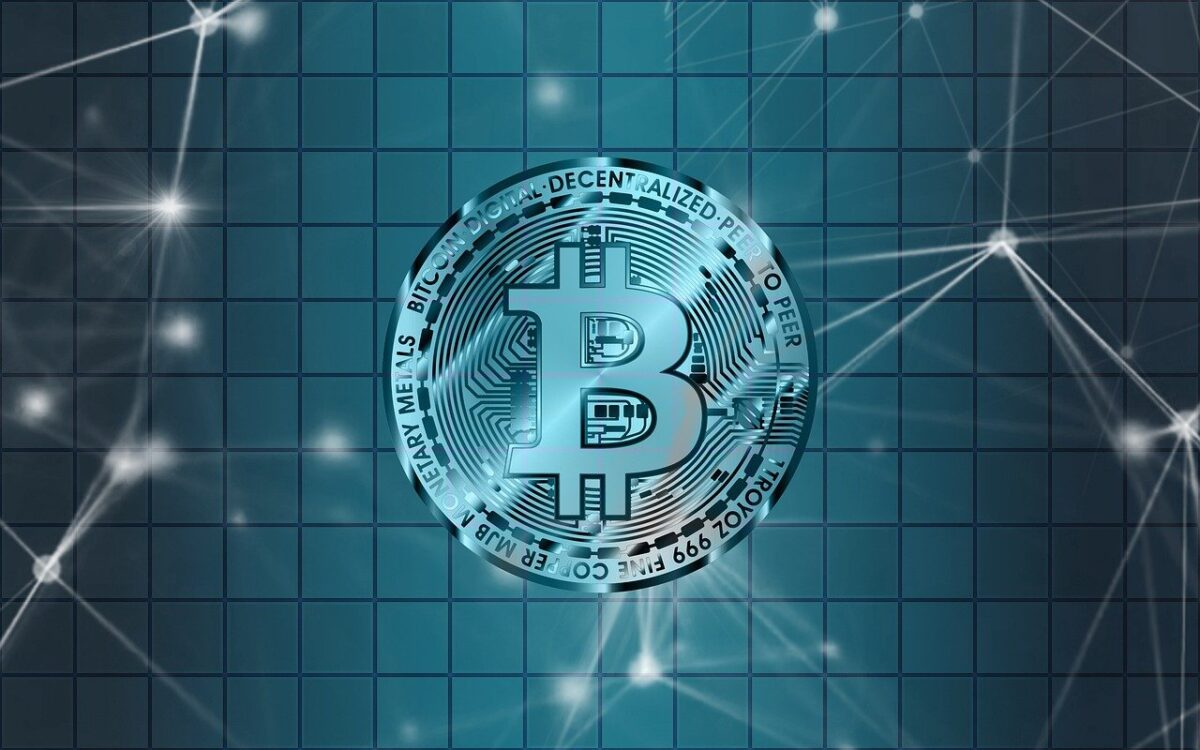
Cryptocurrency podcasts for beginners

Starting with specialized audio material focused on decentralized finance offers a direct route to accumulate foundational knowledge. Curated learning content featuring interviews with industry experts provides nuanced explanations of complex mechanisms such as blockchain protocols, token economics, and transaction validation. These discussions facilitate gradual comprehension by exposing listeners to practical examples and real-world applications.
Regular updates through episodic series ensure you stay informed about recent technological advancements, regulatory changes, and market trends. Engaging dialogues between professionals and analysts foster critical thinking by presenting diverse viewpoints, encouraging you to question assumptions and refine your understanding continuously.
Selecting shows designed specifically for those new to digital asset management guarantees that terminology and concepts are introduced methodically. This structured approach promotes confidence in exploring further independent research or experimentation within this field. Immersing yourself in such auditory educational experiences transforms abstract ideas into accessible knowledge through the power of well-crafted spoken word content.
Audio Series to Initiate Crypto Learning
Engaging with audio material dedicated to decentralized finance technologies offers newcomers concentrated updates and educational insights. Selecting shows that feature methodical breakdowns of blockchain mechanics, tokenomics, and consensus algorithms can accelerate foundational understanding. These broadcasts commonly integrate interviews with industry specialists who reveal technical nuances and practical use cases, allowing novices to absorb verified data through immersive listening.
Regularly tuned episodes maintain awareness of protocol upgrades, regulatory developments, and market trends essential for informed decision-making. Educational content structured progressively–from cryptographic principles to smart contract functionalities–supports stepwise comprehension. This format aids listeners in connecting theoretical concepts to real-world applications, thereby enhancing experimental inquiry into distributed ledger innovations.
Key Resources Featuring Expert Conversations
Programs that prioritize dialogue with developers, researchers, and analysts provide multidimensional perspectives on evolving technologies. For instance, discussions dissecting Ethereum’s transition from Proof-of-Work to Proof-of-Stake elucidate energy efficiency improvements alongside security trade-offs. Such interviews serve as rich case studies illustrating adaptation within blockchain ecosystems.
- Technical deep dives: Episodes focusing on cryptographic hashing algorithms (SHA-256 vs. Ethash) explore underlying security frameworks.
- Market dynamics: Conversations covering token liquidity models clarify economic incentives driving ecosystem participation.
- Regulatory impacts: Panels addressing jurisdictional compliance demonstrate challenges in balancing innovation with legal constraints.
This curated approach ensures learners receive balanced exposure to both theoretical foundations and practical implications.
Structured Content for Progressive Understanding
A successful auditory curriculum utilizes segmented themes progressing from elementary definitions–such as distinguishing between wallets and exchanges–to complex topics including Layer 2 scaling solutions or Decentralized Autonomous Organizations (DAOs). This scaffolding enables critical analysis by building confidence in interpreting technical jargon and architectural diagrams presented during expert talks.
- Foundations: Cryptography basics, blockchain architecture, consensus mechanisms.
- Advanced Concepts: Token standards (ERC-20 vs ERC-721), interoperability protocols like Polkadot or Cosmos.
- Ecosystem Impacts: DeFi strategies, NFT valuation models, governance frameworks.
The interactive nature of some series invites listener questions or live feedback sessions, further enhancing knowledge retention through active participation.
The Role of Continuous Updates in Skill Development
The dynamic character of decentralized networks necessitates ongoing education via up-to-date broadcasts detailing forks, software releases, or emerging threats such as novel attack vectors (e.g., flash loan exploits). Maintaining a subscription to reputable channels delivers a steady stream of actionable intelligence directly impacting investment assessments and technological adoption timelines.
This exemplifies how attentive listening nurtures both theoretical insight and pragmatic awareness necessary for robust expertise development.
Navigating Diverse Media Formats Enhances Comprehension
Audiophiles benefit from varied episode structures such as narrative storytelling combined with panel discussions or solo expert analyses focusing on algorithmic intricacies like zero-knowledge proofs or Byzantine fault tolerance models. This multiplicity encourages comparative evaluation across conceptual approaches while stimulating curiosity about possible future research directions or experimental implementations within blockchain technology domains.
Certain series complement verbal explanations with supplementary materials accessible online–whitepapers summaries, code repositories links–that enable hands-on experimentation aligned with the auditory learning process. Engaging multiple cognitive pathways reinforces memory encoding and facilitates more rapid skill acquisition among self-directed learners exploring this field independently.
How to Choose Audio Shows for Crypto Education
Selecting the right series of audio programs requires prioritizing sources that feature interviews with recognized experts who provide accurate and up-to-date knowledge on blockchain technology. Focus on content that balances technical depth and accessibility, allowing those new to the field to grasp foundational concepts without oversimplification. Reliable series often include episodes dedicated to explaining core mechanisms such as consensus algorithms, cryptographic principles, and decentralized finance protocols.
Regular updates are critical when monitoring fast-developing sectors like distributed ledger systems. Opt for channels that maintain a consistent release schedule with fresh insights reflecting recent market trends, regulatory changes, or technological advancements. Analyzing episode archives can reveal whether the program tracks ongoing developments or primarily recycles outdated material lacking current relevance.
Criteria for Evaluating Educational Audio Content
One effective approach is evaluating the credentials of featured guests and hosts by cross-referencing their industry contributions and professional backgrounds. Interviews conducted with scholars, developers, or analysts who publish peer-reviewed papers or actively participate in blockchain consortia add credibility. This fosters an environment where listeners gain nuanced perspectives rather than marketing-driven narratives.
- Expertise Verification: Confirming the academic qualifications or work experience behind presented claims prevents misinformation.
- Diversity of Topics: A well-rounded educational series covers a spectrum from protocol design and security vulnerabilities to economic incentives embedded within tokenomics.
- Technical Accuracy: Presence of detailed explanations supported by empirical data or case studies demonstrates rigorous content standards.
The format also influences comprehension–audio shows incorporating illustrative analogies alongside real-world applications help translate abstract algorithms into tangible scenarios. For example, an episode explaining zero-knowledge proofs might compare them to secure identification methods used in everyday transactions, thus enhancing retention through relatable examples.
Avoid series that prioritize sensationalism over substance; instead, seek out those emphasizing education through systematic breakdowns of complex ideas. Critical listening paired with note-taking during episodes enhances retention and encourages further research into topics touched upon during interviews.
Lastly, community feedback can serve as an additional filter–platform ratings and listener discussions often highlight which hosts consistently deliver trustworthy analysis versus those prone to speculative commentary. Engaging actively in related forums allows learners to test hypotheses inspired by audio content against collective expertise, reinforcing experimental learning pathways grounded in evidence-based reasoning.
Understanding Common Crypto Terms
Experts recommend focusing on foundational terminology such as “blockchain,” “wallet,” and “consensus mechanism” to build a solid knowledge base. Blockchain refers to a decentralized ledger storing transaction data across multiple nodes, ensuring immutability and transparency. Wallets function as digital tools for managing private and public keys, enabling secure asset storage and transfer. Consensus mechanisms like Proof of Work (PoW) or Proof of Stake (PoS) determine how network participants agree on valid transactions, impacting scalability and security. Audio educational content offers detailed explanations that facilitate stepwise comprehension of these core terms.
Interviews with industry specialists provide nuanced perspectives on concepts like tokenomics, smart contracts, and decentralization. Tokenomics studies the economic models governing digital assets, influencing supply, demand, and value stability. Smart contracts are self-executing protocols coded to automate agreements without intermediaries, reducing operational risk. Decentralization describes the distribution of authority among network participants instead of centralized entities, enhancing resilience against censorship or failure. Regular updates through specialized channels enrich understanding by contextualizing these principles within real-world applications.
Technical Case Studies Enhancing Learning
Examining case studies reveals practical implementations of terms such as “hash rate,” “fork,” and “liquidity pool.” Hash rate measures computational power dedicated to transaction validation; higher rates improve network security but increase energy consumption. A fork occurs when blockchain protocols diverge into separate paths due to rule changes or disputes; notable examples include Bitcoin Cash’s split from Bitcoin. Liquidity pools aggregate user funds in decentralized finance platforms to facilitate asset swaps without centralized exchanges, directly affecting market efficiency. Audio formats allow listeners to absorb these technical details while engaging in active learning.
The integration of frequent education sessions alongside analytical interviews supports sustained knowledge acquisition for novices. Learning through structured sequences–from cryptographic hash functions to advanced staking strategies–builds confidence by linking abstract ideas with tangible scenarios. Encouraging inquiry into these topics nurtures critical thinking necessary for evaluating emerging technologies and investment risks objectively. This methodical approach ensures learners develop both conceptual clarity and practical insight into evolving blockchain phenomena.
Setting up podcast apps
To begin consuming educational audio content efficiently, selecting and configuring an appropriate application is fundamental. Applications such as Spotify, Apple Podcasts, and Google Podcasts allow users to subscribe to channels featuring interviews with experts and timely updates on specialized subjects. Proper setup includes creating an account, adjusting notification settings for new episodes, and customizing playback options to enhance the learning experience.
For those initiating their exploration into expert discussions and technical conversations, ensuring the app supports offline listening is advantageous. This feature allows uninterrupted access to valuable material when internet connectivity is limited. Additionally, enabling automatic downloads of new episodes guarantees immediate availability of fresh content without manual intervention, streamlining continuous education.
Optimizing app features for effective content management
Many applications provide categorization tools that facilitate organization of diverse thematic series. Users can create playlists or folders segmented by topics such as blockchain fundamentals, market analysis, or developer interviews. This systematic approach aids in sequential study and prevents loss of critical information amid extensive archives.
- Playback speed adjustment: Increasing or decreasing audio speed helps accommodate individual comprehension rates during complex explanations.
- Timestamp bookmarking: Marking specific segments enables quick reference to essential insights or technical clarifications presented by specialists.
- Transcription availability: Access to text transcripts complements auditory learning and supports deeper understanding through review.
Integrating external synchronization services like Pocket Casts or Overcast further enhances cross-device continuity. These platforms maintain playback progress across multiple devices, allowing seamless transition between desktop research sessions and mobile listening opportunities.
The selection of reliable sources within the app ecosystem remains critical. Prioritizing creators with recognized expertise ensures exposure to accurate data and informed perspectives rather than speculative content. Verifying credentials through platform ratings and reviewing episode descriptions contribute to maintaining a high standard of educational material.
A methodical approach to app configuration not only simplifies access but also deepens engagement with subject matter experts’ insights. Continuous interaction with updated audio materials fosters incremental knowledge acquisition necessary for mastering evolving technological concepts through sustained auditory education.
Applying Lessons in Trading
Integrating insights from experts through focused audio interviews and targeted educational content significantly accelerates the acquisition of actionable knowledge. Systematic learning via specialized episodes enables traders to refine strategies by analyzing real-world case studies, adaptive algorithms, and behavioral patterns within decentralized markets.
Continuous updates delivered through curated series highlight evolving technical indicators such as on-chain metrics, liquidity flows, and volatility arbitrage opportunities. This layered approach to education cultivates analytical skills necessary for informed decision-making and risk management in complex trading environments.
Key Technical Insights and Future Implications
- Expert Interviews as Dynamic Learning Tools: Dialogues with seasoned analysts reveal nuanced interpretations of market signals, including sentiment analysis derived from social media data and automated bot behaviors.
- Structured Content for Progressive Mastery: Sequential exploration of topics–ranging from order book dynamics to cross-exchange arbitrage–builds foundational understanding while encouraging experimental application.
- Real-Time Updates Enhancing Adaptability: Regular dissemination of protocol changes and regulatory shifts prepares participants to adjust tactical frameworks promptly, maintaining competitiveness.
- Knowledge Integration Through Practice: Applying theoretical constructs in simulated environments or controlled portfolios strengthens hypothesis testing and calibration of trading models.
The convergence of methodical education and expert-curated audio material fosters a cycle of continuous improvement. As decentralized finance protocols advance toward greater composability and automation, these learning modalities will evolve accordingly–integrating AI-driven insights and interactive analytics. Practitioners prepared through immersive auditory content gain a competitive edge by anticipating shifts rather than reacting post-factum.
This trajectory suggests that future pedagogical tools will blend experiential learning with live data streams, enabling iterative experimentation within secure environments. Encouraging critical inquiry alongside empirical validation empowers users to transcend rote memorization–transforming passive consumption into active mastery. Such progression aligns closely with the increasing complexity of algorithmic ecosystems requiring both cognitive agility and technical precision.


